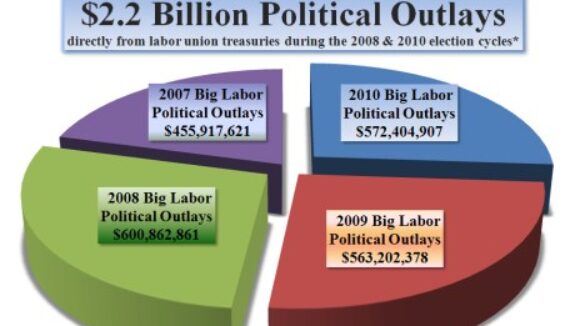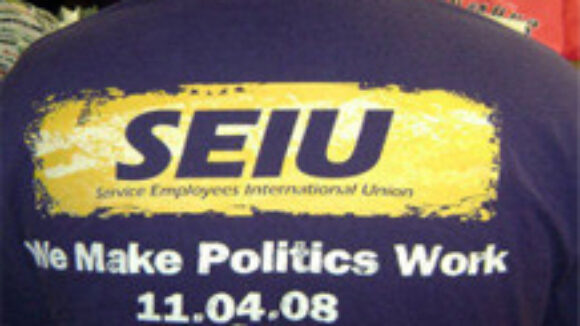SEIU in Bed With Wall Street
Peter Schweizer of the Government Accountability Project has discovered that the biggest funder of the Occupy Wall Street movement is receiving millions of dollars from Wall Street.
The SEIU has an exclusive deal with Visa that is putting millions into their pockets. Here is the story:
With the Service Employees International Union (SEIU) and AFL-CIO spending tens of millions on political activism, including the recall election of Wisconsin Governor Scott Walker, union members might do well to see where the money is coming from.
Big unions are morphing into the kinds of big businesses and banks they decry, hawking to their members everything from high interest credit cards to home loans.
And contrary to Big Labor’s claims, these products offer no real benefit to union members—only to the union bosses.
As the collection of union dues have dipped, union bosses are increasingly looking for ways to bend the revenue curve in their favor by profiting off loans and credit extended to their members.
Consider, for example, the "SEIU New Rewards Visa Card" and the AFL-CIO "Union Plus" card. With each new enrollment and subsequent swipe of the card, the union bags a fee and a percentage respectively.




